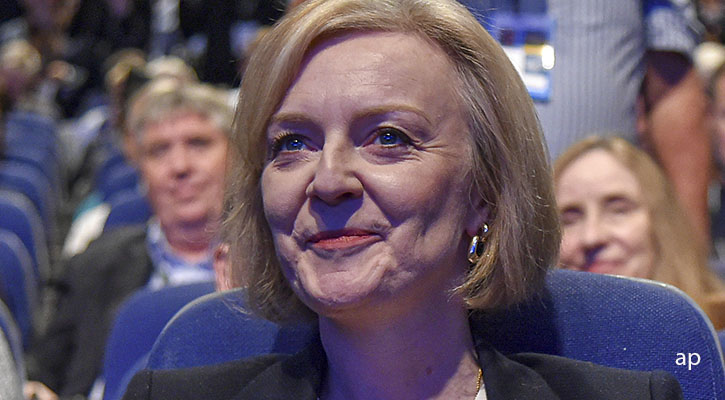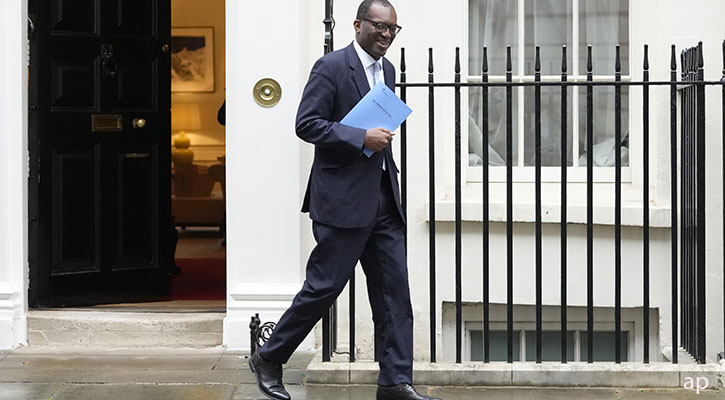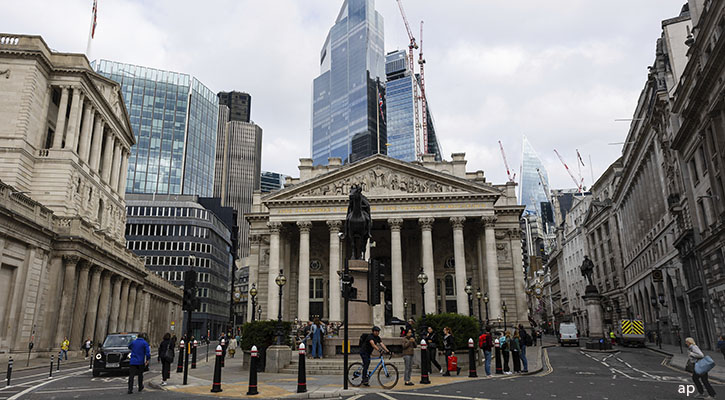
UK prime minister Liz Truss did not rule out raising the state pension age as she sought to resist speculating on "all kinds of decisions that haven't yet been made".
But addressing a question on the issue, Truss also said she would "do what it takes" to address the economic headwinds facing the UK.
The state pension age is currently 66. Two further increases are currently set out in legislation: a gradual rise to 67 between 2026 and 2028, and a gradual rise to 68 between 2044 and 2046.
But a review is currently under way. Reviewed every six years, the latest was launched in December last year, and the findings are due to be published no later than May 2023.
With the PM under pressure to balance the books, she was asked by broadcasters in Birmingham – where the Conservative party conference is being held – whether she will end up raising the state pension age beyond 67.
Truss responded: "You're asking me to speculate about all kinds of decisions that haven't yet been made."
Battle over Benefits
Meanwhile, Liz Truss stressed she must take a "responsible" approach to the public finances, as she faces a Cabinet split and a fresh battle with Tory rebels fighting real-terms cuts to benefits. The pound has continued to recover after last week’s chaos, trading around $1.14, building on gains since the government U-turned on abolishing the highest rate of tax.
The prime minister is refusing to rule out a return to austerity or say whether welfare payments will be increased in line with soaring inflation.
Critics who forced a U-turn over the plan to abolish the 45 pence tax rate for top earners are now stepping up pressure on the government to confirm benefits will be raised.
Commons Leader Penny Mordaunt has publicly backed increasing them in line with inflation so that people can pay their bills, warning many Tory colleagues have backed that before.
Downing Street has not denied suggestions that Truss could resist rebels' pressure to instead increase benefits in line with earnings, which are expected to be much lower than inflation.
Fiscal Plan - Sooner Than November
Chancellor Kwasi Kwarteng has already made a second change of course to reassure markets and Tory rebels by bringing forward his medium-term fiscal plan along with independent forecasts.
Truss has committed to increase pensions in line with prices but on benefits said "we have to be fiscally responsible".
Benefits are usually uprated in line with the consumer price index rate of inflation from September, with the rise coming into effect the following April.
The Institute for Fiscal Studies estimates that each percentage point rise in CPI adds £1.6 billion to welfare spending.
Truss sought to take some of the pressure off Kwarteng as he faces criticism for the doomed plans to axe the 45% tax rate on earnings over £150,000.
She insisted that "we worked on it together" when questioned whose idea it was to abolish the tax.
Kwarteng had been planning to wait until November 23 to publish his medium-term fiscal plan and official forecasts from the Office for Budget Responsibility.
But it is understood he will publish them later this month after he told the Tory party conference in Birmingham he will set out more "shortly".





























